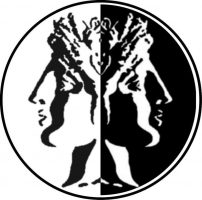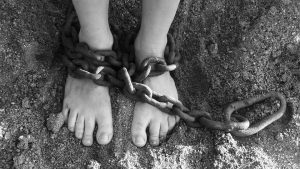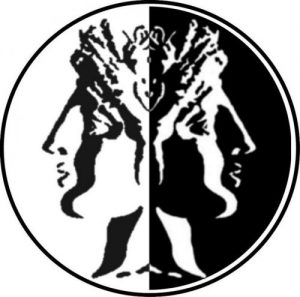Without my consent, I was personally and quickly propelled into the world of drug addiction. For over 15 years, I had been suffering from a panic disorder that splattered my days with anxiety attacks, making my life hellish. Nausea, vertigo, heart palpitations, abdominal pain, the feeling of dying… The symptoms resembled those of a heart attack, and I was forced to avoid any situation that could bring them on.
I was compelled to lock myself up at home, feeling exhausted and hopeless. To treat my out-of-control anxiety, my family doctor made the decision to put me on anti-anxiety medication, called benzodiazepines. It was a tiny pill, really, with an inconspicuous look to it. It was supposed to help make my life normal again. Without a second thought, I followed the white coat-garbed doctor’s advice. The pill had such an extraordinary effect right from the start, I wondered why no one had prescribed it to me before.
After a year of being anxiety-free, I decided to stop taking it. And that’s precisely when I understood that without my daily intake, the harrowing symptoms I wanted to avoid at all cost would continue to plague me: shakiness, increased anxiety, restlessness, nausea, etc. Even worse, I had to increase the dosage to get the same soothing effect. I couldn’t do without it anymore, and reality hit me hard: I had become a junkie, a drug addict.

I could not live anymore without this toxic substance I had become physically and mentally dependent on, the withdrawal symptoms being both physical and psychological. My tolerance level to it also had insidiously and exponentially increased. I had become incapable of ending this double and inextricable dependency, even though I knew it was keeping me in a state of slavery.
Janus, the two-faced Roman god: one face looks to the past, the other to the future.
Being mad with poison
The French word for “drug addiction” is “toxicomanie. ” It has a very telling Greek etymology. Toxikon means poison, and mania means madness. Put otherwise, “toxicomanie” is the madness for poison. It perfectly describes what my situation was. I could not live anymore without this toxic substance I had become physically and mentally dependent on, the withdrawal symptoms being both physical and psychological. My tolerance level to it also had insidiously and exponentially increased. I had become incapable of ending this double and inextricable dependency, even though I knew it was keeping me in a state of slavery.
The word “addiction” actually carries this notion of slavery. Contrary to what is often thought, the word addiction in French does not come from the English. It comes from the Latin addictus, which means “dedicated to a master.” The person who “dedicates” himself or herself to a drug is indeed enslaved, having utterly lost any self-control and freedom. Addicts cannot stop their toxic behavior and its negative repercussions on their entourage, even when they fully realize what is happening.

I took the first pills because I wanted to live, be happy and flee from my mental pain. It’s only once I was addicted that I understood that while this pill allowed me to find relief and feel better, it was destroying my life. But it was too late: the drug had become the centre of my life, and the only solution to get out of my pain.
Addictus: Being the slave of.
When addictus helps us understand drug addiction
Strangely enough, it’s an English speaker who reintroduced the word addiction in French, in 1978. Looking for the French equivalent of the English word addiction, the psychoanalyst Joyce McDougall wasn’t satisfied with the word toxicomanie, which, from an etymological standpoint, does not properly express the drug addict’s fundamental motivation. In truth, addicts are not looking to poison themselves, like the word toxicomanie indicates, rather, they are looking to self-medicate, motivated as they may be by the need to feel better, to heal. “The substance is invested with beneficial qualities, and it is often used to heal and reduce painful emotional states that the subject finds intolerable.” [1]
The object of my addiction, a pill that fought back anxiety, shows plainly enough my attempt to heal, to feel better. I took the first pills because I wanted to live, be happy and flee from my mental pain. It’s only once I was addicted that I understood that while this pill allowed me to find relief and feel better, it was destroying my life. But it was too late: the drug had become the centre of my life, and the only solution to get out of my pain.
Desperately Trying to Feel Better
Today’s addiction specialists seek to understand how the mind of an addict works, because “new” addictions to gambling, sex, shopping, etc., are evidence enough that the addictive properties of a substance cannot be the only way to explain addiction. Whether it involves using a drug or a behavior pattern, addiction always activates the brain’s complex reward system, and all addicts hurt cruelly from all the precious time and energy they lose in it. Their whole life revolves around this treacherous remedy. That’s how little common dependencies that everybody has, become absurdly and hugely problematic.
The drug addict’s self-intoxication is foremost a behavior, much like the sex addict who compulsively resorts to pornography. Neither actually wants to be intoxicated; they are merely looking for a way to deal with a pain that crushes them.
Going From Being Addicted to Being Passionate
Just like the Roman god Janus, those who are addicted to drugs, alcohol, or to anything else, have two faces, one turned towards the past, and the other, to the future. They behave like they do in order to receive instant gratification or relief, to forget temporarily what is painful about the past, and to suppress whatever feels bleak about the future. The problem is that they remove themselves from the now, which is the only time and space where it is possible to deal with the past and start building the future.
Because I was always running away from the present, I found myself at 37 years old in a drug addiction rehabilitation centre, covered in shame. The shame of not having been able to solve my problems on my own, of not having been more intelligent than the substance, of needing help. But drug addiction did give me something: it allowed me to meet my peers, to engage in a therapeutic and empathetic relationship with myself, and to feel fully welcomed in a community who understood me without judging me. I had so rarely felt that in “normal” society.
Speaking of normality, I wonder if drug addicts could not be seen as simply hyper passionate people, impulsive people who take greater risks than others. I overdid myself in my desire to feel better in life, like I often do with anything I deeply care about. Today, I strive every day not to fall back into the trap of addiction, by transforming this constant battle into a passion to understand addiction.
Isabelle Fortin
Blogger for Portage
Lan Vi Pham
Editor and Translator
Read the next article:
The Rat Park Study: Gaining a Better Understanding of Addiction
[1] Saïet, Mathilde. Les addictions. Paris: PUF, 2015, p. 16.






Jane
Isabelle, this is beautiful. I thank you for it and hope that more people will read this – both addicts, and relatives and friends of addicts. I lost my nephew to a drug overdose several years ago. Since then I have been struggling with how to reconcile two things I know to be true but that seem to contradict each other. I swing between love and acceptance, and anger. I often think I have made peace with both these realities and to allow my love for him to reverberate, then discover I have not. I have done much reading about addiction and addicts but YOUR BLOG POST more than any I have ever read has helped me to understand the trap that addicts are in, the trap that my nephew was in (also started with a little pill for ADHD that a psychiatrist prescribed, and a few years later with another little pill that a physician prescribed him for radiation treatments for cancer): caught between wanting to forget the painful past, and wanting to, in your words, “suppress whatever feels bleak about the future.” I do hear what you say about the addict losing, or being unable to access, the “now,” where possibility exists and takes root. In those times when he deceived me, it was because he had lost self-control; he had lost his freedom. I hope your writing inspires many who may be caught in this trap, this “dedication to a master,” this “taxikon” and this PORTAGE program is a BLESSING that I hope whoever needs it will come and choose.